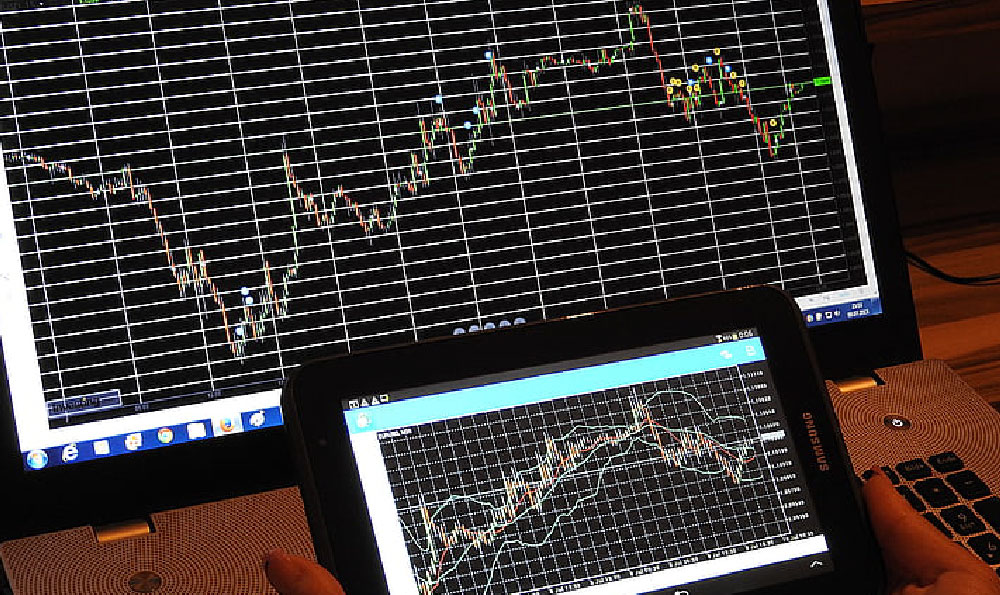Okay, I understand. Here's an article addressing the profitability of day trading, avoiding excessive bullet points and numbered lists, aiming for a flowing, comprehensive explanation, and written in English:
The allure of quick riches and the freedom to work from anywhere have fueled the popularity of day trading. The idea of buying low and selling high within the same day, capturing small profits repeatedly, seems incredibly appealing. But the question remains: can you really make money day trading, and, perhaps more importantly, is it a profitable endeavor for you?
The simple answer is yes, it's possible to make money day trading. There are individuals who consistently generate income through this method. However, it's crucial to understand that these successful day traders are a small minority, and their achievements often come after years of dedicated learning, rigorous discipline, and substantial risk tolerance. They possess a deep understanding of market dynamics, technical analysis, and risk management strategies, skills that are not easily acquired.

The allure of quick profits often overshadows the inherent challenges and complexities of day trading. Consider the sheer volume of information a day trader needs to process in real-time. They're constantly monitoring price charts, news feeds, economic indicators, and order books, searching for fleeting opportunities. They need to identify patterns, anticipate price movements, and execute trades with speed and precision. Even a slight hesitation or miscalculation can result in significant losses, as the market moves quickly and unforgivingly.
Furthermore, the emotional toll of day trading is often underestimated. The constant pressure to make decisions under stress, the fear of missing out on potential gains (FOMO), and the inevitable experience of losses can lead to anxiety, frustration, and impulsive behavior. These emotions can cloud judgment and lead to poor trading decisions, ultimately eroding profits. Successful day traders develop strategies to manage these emotions, often employing strict rules and routines to maintain objectivity.
One of the biggest hurdles for aspiring day traders is the learning curve. While readily available online resources offer a wealth of information about trading strategies and technical indicators, understanding and applying this knowledge in a real-world market environment is a different story. Many individuals underestimate the time and effort required to develop a profitable trading system. They may jump into live trading without adequate preparation, relying on gut feelings or unproven strategies, leading to quick and devastating losses.
The importance of risk management in day trading cannot be overstated. Given the inherent volatility of the market and the potential for rapid losses, effective risk management is essential for survival. This includes setting stop-loss orders to limit potential losses on each trade, carefully calculating position sizes to avoid overexposure, and diversifying across multiple trades to mitigate the impact of any single losing trade. A sound risk management strategy is not just about protecting capital; it's about ensuring the trader can stay in the game long enough to learn, adapt, and eventually become profitable.
Another factor to consider is the impact of transaction costs. Day trading involves frequent buying and selling, which means incurring brokerage fees, commissions, and potential slippage (the difference between the expected price of a trade and the actual price at which it is executed). These costs can quickly add up and significantly reduce profits, especially for small trades. Therefore, it's crucial to factor in these costs when evaluating the potential profitability of a trading strategy.
Beyond the technical and emotional challenges, the regulatory environment also plays a role in the profitability of day trading. Many jurisdictions have specific rules and regulations governing day trading activities, including minimum capital requirements and pattern day trader rules. Failing to comply with these regulations can result in fines, penalties, or even the suspension of trading privileges.
So, is day trading profitable for you? To answer this question, you need to honestly assess your skills, resources, and risk tolerance. Are you willing to dedicate the time and effort required to learn the intricacies of the market and develop a profitable trading system? Do you have the discipline and emotional control to stick to your trading plan, even when faced with losses? Do you have sufficient capital to absorb potential losses and cover transaction costs?
If you answered "no" to any of these questions, day trading may not be the right path for you. There are many other investment strategies that may be more suitable for your individual circumstances and risk profile. Consider long-term investing, diversification across different asset classes, or seeking professional financial advice.
However, if you are passionate about the market, possess a strong work ethic, and are willing to embrace the challenges and risks, day trading can potentially be a rewarding career. But remember, success in day trading is not guaranteed, and it requires dedication, discipline, and a willingness to learn from mistakes. Treat it like a business, not a gamble, and approach it with a realistic understanding of the odds. The vast majority of individuals who try day trading lose money. Understanding that sobering statistic is the first step to potentially beating the odds. It’s about rigorous self-assessment, continuous learning, and unwavering risk management. Only then can you realistically answer whether day trading can be profitable for you.












